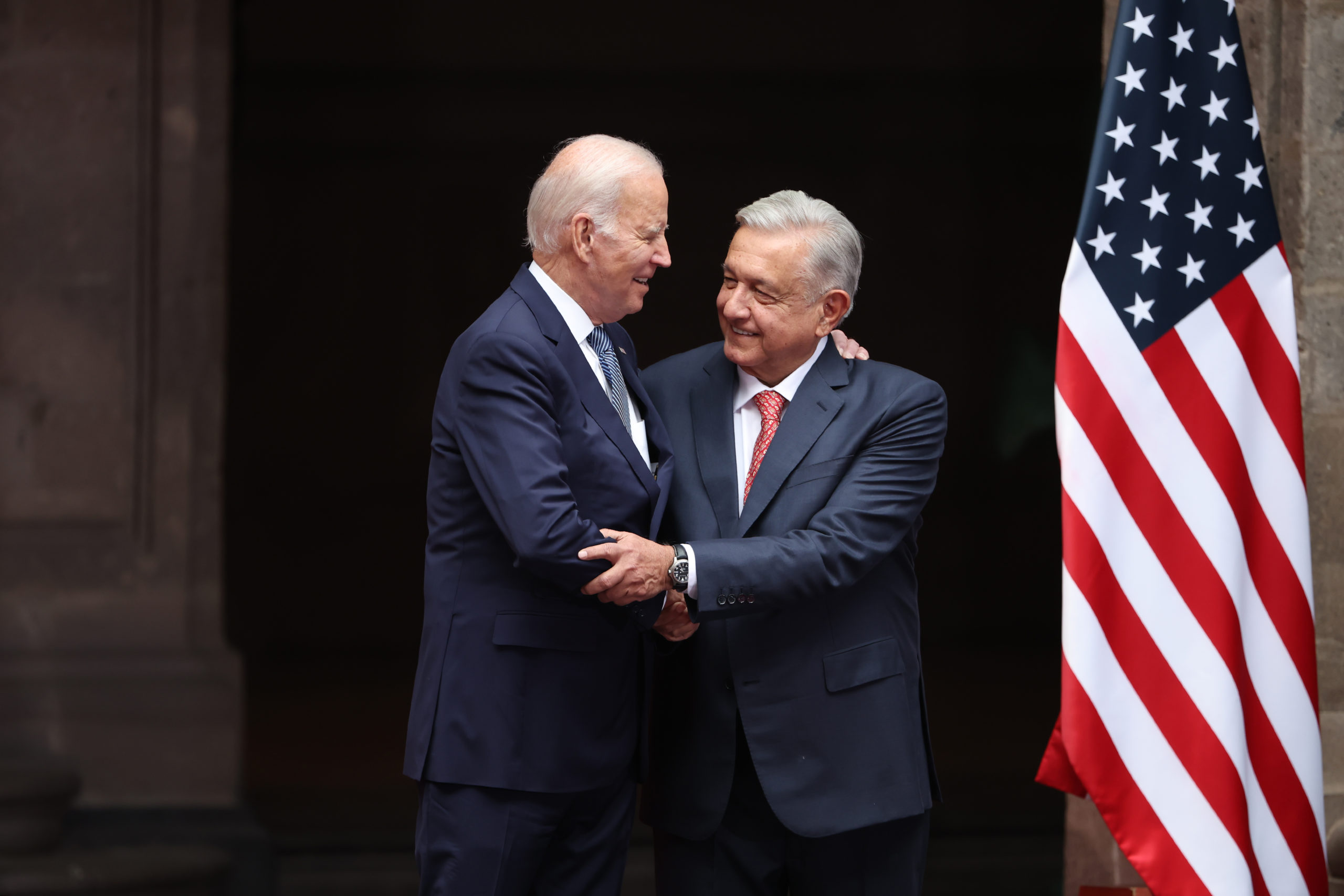Why Make the Perfect the Enemy of the Good?
The Biden administration shows a rare flash of prudence by treading lightly around the nationalization of the Mexican lithium industry.

Making the perfect the enemy of the good is a characteristic American tic—an admirable impulse that has underwritten many a national achievement, but has more often than not encouraged rash foreign policy. The hunger for other nations to be democratic, liberal, and friendly to American interests public and private has proven to be an untrustworthy appetite.
The last administration showed more caution. While the Trump White House struggled to extract American fingers from the far-flung pies of global conflict—admittedly in the face of direct defiance from the American defense apparatus—it involved us in no new large-scale wars. The Biden administration, despite its escalatory stance toward Russia and China, has for now maintained that basic level of restraint, and deserves to be applauded for it.
Military policy involves us in many places, but economic and trade policy involves us everywhere; straightening the path for capital interests is a cornerstone of the American world order. This is nowhere clearer than in our own backyard, where NAFTA (and its successor, the USMCA) and aid money were used to encourage economic liberalization in Mexico.
The leftist administration of Andres Manuel Lopez Obrador has attempted to reverse the trends of the past 30 years; most notably, it has strengthened state-owned actors in the Mexican oil industry, reversing the market-oriented reforms of his predecessor and provoking statements of displeasure from the U.S. government and the threat of punitive tariffs. But one element of Lopez Obrador’s pinkening of the Mexican energy industry has almost escaped without American comment: last year’s nationalization of Mexico’s lithium exploitation. Why?
Lithium is a rare earth element used in the manufacture of electric vehicle batteries; while the lion’s share of it is found in Latin America, Chinese interests are responsible for 60 percent of the world’s production, as well as three-quarters of the production of finished lithium batteries. As part of the broader program of decoupling from China, the U.S. government is taking steps to encourage the reshoring or nearshoring of the lithium-ion battery supply chain.
In 2018, U.K.-based mining interest Bacanora discovered lithium deposits in Sonora, a state in northern Mexico on the border with California. The U.S. Geologic Survey estimates that the clays hold 1.7 million tons of lithium, making Mexico’s reserves the world’s ninth-largest. Bacanora struck a deal with Chinese mining titan Ganfeng Lithium to exploit the clays in a 50-50 deal; in 2021, Ganfeng acquired a 97.3 percent stake in Bacanora, making the Sonora deposit exploitation an almost entirely Chinese-backed operation.
In April 2022, after six months of work on the relevant legislation, the Mexican government nationalized the lithium industry, reserving all future rights for a state-backed lithium miner and triggering the review of all existing agreements pertaining to the resource, including the Bacanora-Ganfeng deal in Sonora.
Sonora, it is worth noting, is the home of the infamous Sinaloa drug cartel, which, among other activities, is largely responsible for the flood of fentanyl coming over the border into the U.S. Commentators have suggested that the state’s rampant crime is a major hurdle to the success of any mining operations in the area. While there are not yet any examples of security measures taken at state-run lithium extraction operations for obvious reasons, the Mexican army has been used to protect other state-owned energy company operations.
So we return to the question of why, and the tendency to make the perfect the enemy of the good.
Market liberalization—e.g., that of Ukrainian agricultural lands—makes new arenas for competition with rivals, and consequently for American state intervention to protect American commercial interests. Mexican lithium nationalization shows the opposite case: A country’s protectionist measures would dislodge an American rival from our own back porch and compel the country to take a serious hand in attending to its own security concerns, rather than passing the buck to American law enforcement—and, in the process, as Lopez Obrador pointed out last July, would achieve the American strategic aim of nearshoring a vital supply chain. Isn’t that worth closing an outlet for American capital and sacrificing some free-market orthodoxy? It may not be perfect, but isn’t it pretty good?
Subscribe Today
Get daily emails in your inbox
So far, it seems, the Biden administration thinks so. It is only as the renewed prospect of a Chinese toehold in Sonora comes into focus—Lopez Obrador suggested Tuesday that an arrangement will be reached between the Mexican government and Ganfeng—that the US government has expressed opposition to the lithium nationalization, with Assistant Secretary of State Brian Nichols calling for lithium mining being opened to the private sector in a January 17 interview with Milenio.
The Latin American “pink tide” poses challenges for American interests in the western hemisphere, but it also offers opportunities for those who would like to see a more restrained foreign policy attitude in Washington. The impulse behind Yanqui go home can be harnessed to Chino go home. Guaranteeing the notional economic freedoms of Mexicans and Bolivians (and, more importantly, Americans in Mexico and Bolivia) may sometimes be in the national interest—although it may be a headache as often as not. On the other hand, allowing arrangements that will compel our neighbors to police their own territory and keep out our near-peer rivals is always in the national interest.
American toleration of the elements of lighter forms of socialism—including the nationalization of industries—prevented the expansion of our last great rival, the USSR, and has kept the peace in Europe’s core for 80 years. Why should Latin America be any different? Why make the perfect the enemy of the good?
Comments